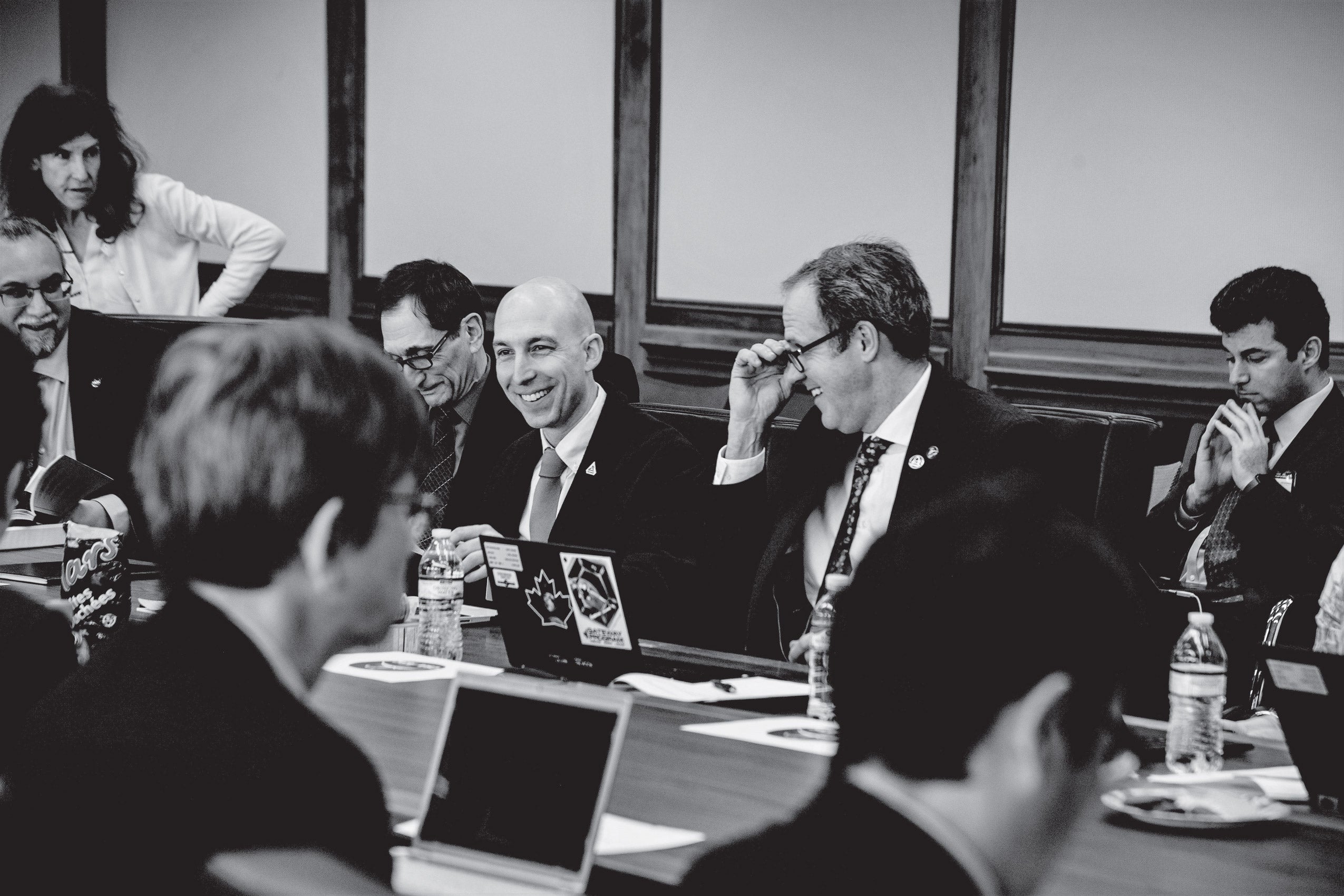“I was heading back from Tokyo with a friend from NASA where we’d been negotiating this Gateway agreement for the creation of a space station that will orbit the moon,” said Gabriel Swiney ’05. But on the trip home they realized they needed a set of rules regulating the eventual return to the lunar surface. “We just started brainstorming on the 12-hour flight, exploring the kinds of questions we wanted to answer and some potential answers,” said Swiney of the Artemis Accords, a set of rules designed to help govern the responsible exploration and use of the moon, planets, comets, and asteroids for peaceful purposes. “I wrote the first draft over the Arctic Circle, and when we landed, we emailed it to the White House.”
The legal framework, which has been signed by 14 nations (as of this story’s writing) since it became official in 2020, embraces a set of principles for the future of space travel, discovery, and research. The accords are grounded in a universal commitment to transparency and international cooperation, said Swiney, an international space lawyer for the U.S. Department of State, and expand in important ways on the values outlined in the Outer Space Treaty of 1967.
The earlier agreement, crafted just two years before the Apollo 11 flight first landed a person on the moon, is written “in very general terms,” he said, and doesn’t account for scientific advances in the intervening years that have provided more nations with the technical know-how needed to blast rockets into the galaxy. In the not-too-distant future, questions around mining rights on the moon, or what happens when two countries want to explore the same area of the lunar surface, or an asteroid, or Mars, will need to be addressed.
“We realized there was this whole set of issues that just didn’t have answers,” said Swiney. “And we saw that as a challenge, but also an opportunity to demonstrate American leadership in terms of setting the rules.”
Those rules will help govern what nations, and the private sector, can do in outer space. In recent years, companies such as SpaceX and Virgin Galactic have been working hard to ensure commercial shuttles to the edge of space and beyond will be available, and more affordable, in the years ahead. Swiney sees regulating such ventures without hampering their ability to innovate as a key part of his work.
“We want to come up with not only rules that respond to these early actors, but ones that are durable and that can scale and spread to other parts of the world,” he said. “But we are also trying not to create so many rules in advance that we end up strangling these new industries.”
But just how exactly does one get involved in developing a legal framework for the cosmos?
But just how exactly does one get involved in developing a legal framework for the cosmos? It helps to have a longtime interest in the law, to have a passion for science, and to have attended Space Camp as a kid. For two summers Swiney spent a week surrounded by other young space enthusiasts at a NASA-run program. They passed their days listening to lectures by retired astronauts, scientists, and engineers; reading instruction manuals for the space shuttle; and taking part in simulated missions. “It was just the most fun thing ever,” said Swiney, “and it really gave you a taste of what it would actually be like to work in the space sector.”
With a trial attorney and judge for a father and his own strong mock trial record in high school and college, Swiney was well versed in the role of courtroom prosecutor by the time he arrived in Cambridge. But at HLS he gravitated toward international law.
“I realized that international law is so much less well defined than domestic law. There’s so much ambiguity, so many gaps, so much work to be done to build the rules, not just apply them,” said Swiney.
But HLS inspired more than just an interest in international legal theory. It also inspired romance. When classmates from his Section 6 dropped out of a camping trip in the early days of their first year, Swiney and his future wife, Chrystie Flournoy, went anyway.
“We didn’t know each other that well when we started, but because it was just the two of us hiking and camping, we had two days of nonstop talking, and we completely fell in love,” he said.
Since 2007, Swiney has served in the State Department’s Office of the Legal Adviser, where he has worked on a range of topics, including peace treaties, environmental law, and the use of force in Iraq. His work in space law, he says, has allowed him to merge his experience and his passion to help future generations chart a safer, fairer path to the stars.
